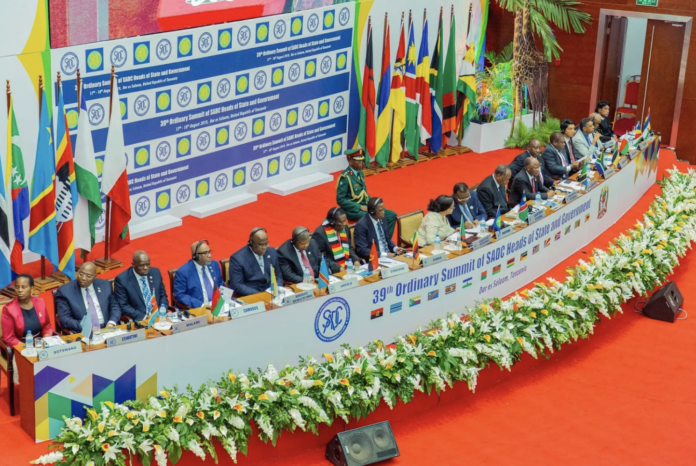MISA Zimbabwe on 15 April 2023 met with the SADC Electoral Advisory Commission (SAEC) in Harare, where the media freedom lobby and advocacy organisation raised concerns on the safety of journalists, particularly during electoral processes.
MISA Zimbabwe was represented by its national director, Tabani Moyo, and chairperson of the Trust Fund Board, Cris Chinaka.
The SEAC was represented by its chairperson, Judge Ticheme Dlamini and his deputy Advocate Notemba Tjipeuja.
In his introductory remarks, Moyo appraised the mission on the progress made since the 2018 elections, specifically noting the repeal of the Access to Information and Protection Privacy Act (AIPPA) in 2020 and the enactment of the Freedom of Information Act.
He also mentioned the historic licensing of the first-ever community radio stations and private commercial television stations.
He also brought the mission’s attention to the progressive steps being taken through the post-Cabinet weekly media briefings.
Moyo however, highlighted that previous elections were marked by increases in attacks against journalists and it was imperative that measures be put in place to ensure the safety of media workers during the electoral period.
One example of the mitigatory interventions that MISA Zimbabwe was involved in was implementation of the Police Media Action Plan of December 2017.
This has seen MISA Zimbabwe and other media support organisations engaging the police throughout the country in an effort to ensure that the safety of journalists is prioritised, more so ahead of the 2023 elections.
Moyo expressed concern that the media environment in Zimbabwe continued to deteriorate with the country falling from 128 in the 2017 Reporters Without Borders’ World Press Freedom Index to 137 in 2022.
“The environment continues to deteriorate,” Moyo cautioned.
He also pointed out that previous observer missions had noted that coverage of political parties by the Zimbabwe Broadcasting Corporation (ZBC) was skewed in the ruling Zanu PF’s favour, despite constitutional provisions for equitable access to the national broadcaster.
Furthermore, the MISA Zimbabwe delegation highlighted its concerns with the dual accreditation process that continues to exist, warning that this could pose a barrier to access to information. Journalists are required to register with the Zimbabwe Media Commission, while they also have to accredit with the Zimbabwe Electoral Commission during elections.
These registration processes are onerous and could dissuade some journalists from registering with the electoral management body.
Another issue of concern pertains to access to the internet as happened in 2019 when it was shut down by the government.
Moyo pointed out that access to the internet was expensive and this could hinder citizen’s access to information and participation in issues that affect them.
Surveillance could be on the rise, Moyo said, adding that this could all have stemmed from the Maputo Summit in 2020, where SADC Heads of State and Government resolved to take pre-emptive measures against external interference, the impact of fake news and abuse of social media particularly in electoral processes.
Since then, the Minister of Information, Publicity and Broadcasting Services Senator Monica Mutsvangwa has warned that the authorities had set up social media monitoring teams to monitor what people send and receive on social media.
In March 2020, the now-late army commander, Lieutenant-General Edzai Chimonyo, said the army would start snooping into private communications between citizens to “guard against subversion”, claiming that the use of social media posed a threat to national security.
The Citizen Lab Toronto had in December 2020, reported Zimbabwe as to be a customer of Circles, a surveillance firm that reported exploits weaknesses in the global mobile phone system to snoop on calls, texts, and the location of phones around the globe.
The authorities also enacted the Cyber and Data Protection Act, which criminalises defamation and the publication of false information, despite previous Constitutional Court rulings that this has a chilling effect on freedom of expression.
The government is also in the process of enacting the Private Voluntary Organisations Amendment Bill and amending the Criminal Law (Codification and Reform) Act – two pieces of legislation that could have far reaching consequences on freedom of association and expression.
Chinaka said misinformation and disinformation was on the rise and that media advocacy groups were engaging political organisations in an effort to mitigate the effects of the disinformation disorders.
Zimbabwe, 17 April 2023




